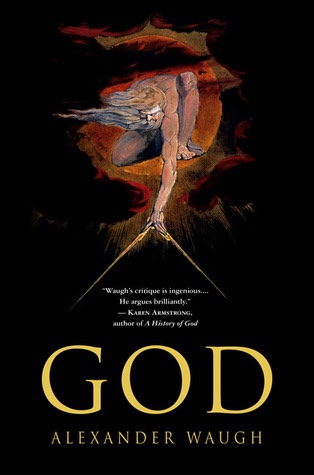

NB – This is a very lightly revised version of a review I wrote many years ago.
I really loved reading this book.
Waugh’s colourful and irreverent romp through huge swathes of material – mostly Biblical, but casting his net a bit wider, in terms of sources (albeit concentrating on the Judaeo-Christian deity) – much of which is either arcane, pure gibberish, or mixture of both, is both very educational and highly enjoyable.
It’s decidedly not a book likely to be admired by the devout. Indeed, I was made aware of it – and actually given my copy of it – by a believing friend, who refused to read it, for fear it will undermine their faith (exactly why he should read it, in my view).
From certain perspectives Waugh is, I’ll admit, more than a little disingenuous in his intro (to find out what I mean by this, I suggest reading it). Long before the end of the book one gets a strong sense that he finds the highly irrational, deeply contradictory, and frequently plain nasty image of The Almighty, which one glimpses through his multifarious sources, a very ill-defined (through over-description – or, in other terms, the hagiographies of hordes of believers – rather than any want of such descriptions), nebulous, and on the whole repugnant creation of the human mind.
It is remarkable how many of us non-believers feel so drawn to examining what a believer might choose to call our ‘apostasy’. I think it just goes to show how deeply enmeshed in our lives and cultures religion remains.
I might share the desire of many naturalists and free-thinkers in wishing to see humanity’s consciousness collectively evolve beyond the religious phase, but unlike Dawkins and some others, who at some points seemed to believe such a state was imminent, I think we’re a massively (depressingly) long way – as a species – from choosing rationality over superstition. But that’s exactly why books such as this are so important.
Waugh is at times flippant, and frequently very funny, but underlying all this (and despite the occasional lapse into cheap shots at straw-Gods) is the very serious desire to see, both for oneself and as a society, just who on earth this damnable God is, exactly.
Personally I loved this book and, having gone as far as buying copies for friends, would obviously recommend it to anyone interested in such things.

